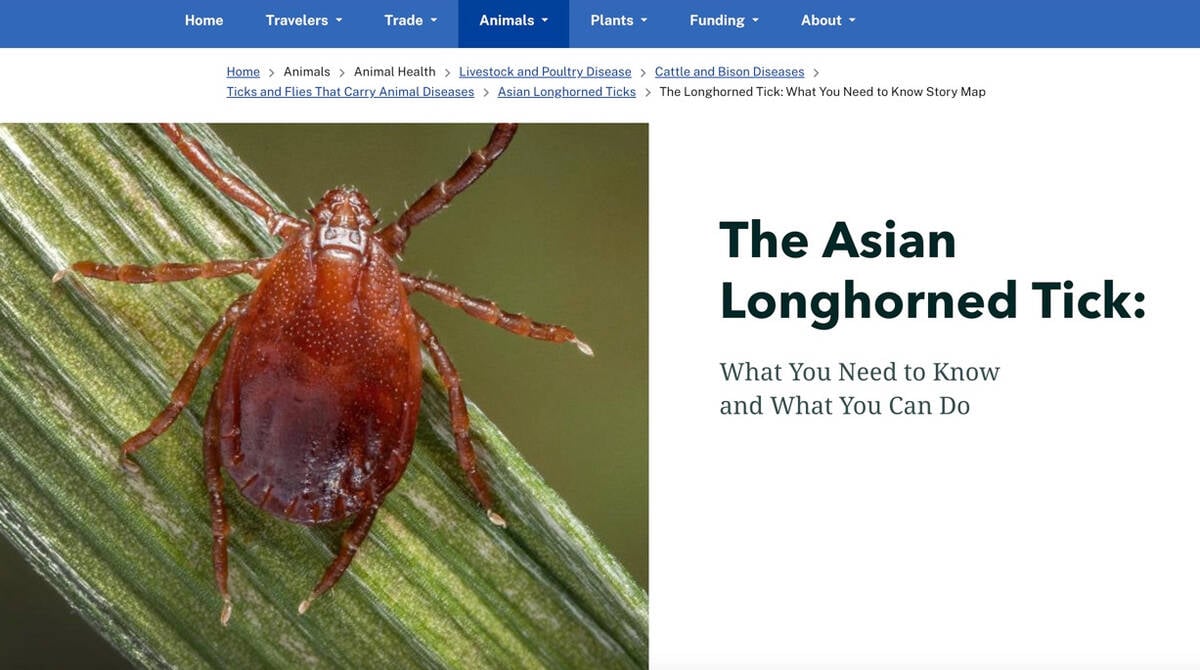Shodan, a Shepherd-Samoyed cross dog that lives in Pass Creek, B.C., is dissatisfied with the federal government’s hands-off approach to regulating pet food, says his owner.
The owner happens to be B.C. New Democrat MP and agriculture critic Alex Atamanenko, who raised the issue in the House of Commons in the wake of several North American animal deaths linked to contaminated pet food.
Menu Foods of Mississauga, Ont., has recalled more than 40 million packages of “cuts and gravy” style cat and dog food after animals began to get sick and some died from kidney failure. There have been reports of up to 20 pet deaths from kidney failure in the United States and Canada.
Read Also

New World screwworm not seen as trade threat
Canadian cattle producers shouldn’t be worried about the New World screwworm, which has become a massive concern for ranchers in Mexico and is threatening the southern United States
U.S. regulators have concluded the culprit is contaminated wheat gluten imported from China.
The company is facing multiple lawsuits including a class action suit being organized by Regina-based Merchant Group lawyers.
Amid some pet owner panic and questions about who regulates the safety of pet food, it emerged that the federal government has no substantive role.
In the House of Commons, agriculture minister Chuck Strahl told Atamanenko that the Canadian Food Inspection Agency was monitoring the product recall announced by the company to make sure the products were removed from shelves. Government has a limited role in pet food regulation, he added, but has no role in assessing the products.
Regulations will take effect July 12 to keep specified risk material, thought to potentially spread BSE, out of pet food and Industry Canada has rules requiring proper labelling, but there is no safety inspection.
Outside the House, Strahl went further.
“There isn’t a role for the CFIA,” he told reporters. “The food inspection is for human consumption. That’s the agency that looks after that.”
“My dog Shodan is not satisfied with that response,” said Atamanenko to much Commons laughter. “The United States has regulation. The United Kingdom has regulation. In fact, the entire European Union has regulation.”
Yet no one in the Canadian government is responsible for overseeing the multibillion-dollar pet food industry.
“What is the minister going to do?” asked the NDP MP. “Will he expand the role of CFIA? Will he regulate this industry?”
Atamanenko and Shodan are not alone in their demand.
This week in Ottawa, members of the National Companion Animals Coalition that represents veterinarians, humane societies, kennel clubs and pet stores are expected to discuss a proposal to call on Ottawa to begin inspecting and regulating the pet food industry.
Shelagh MacDonald, program director for the Canadian Federation of Humane Societies, said her federation already has developed a position.
“We want to pursue efforts to advise the government they should be introducing some kind of regulations,” she said. “This is a huge industry and we think it should be supervised.”
However, MacDonald quickly said the humane societies federation is not blaming the pet food manufacturer Menu Foods. It purchased low priced Chinese wheat gluten imported to North America by ChemNutra Inc. of Las Vegas, Nevada, for resale to pet food manufacturers.
“We don’t think there is any blame to the company, which simply was following the rules and purchasing ingredients,” she said.
MacDonald said the Canadian Veterinary Medicine Association also favours federal regulations.
Strahl told reporters that the vet association monitors pet food imports and CFIA assists it in getting the word out if a recall is required.














